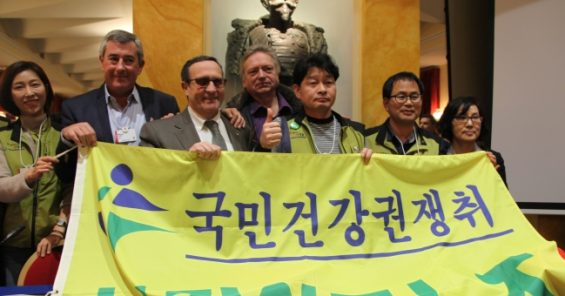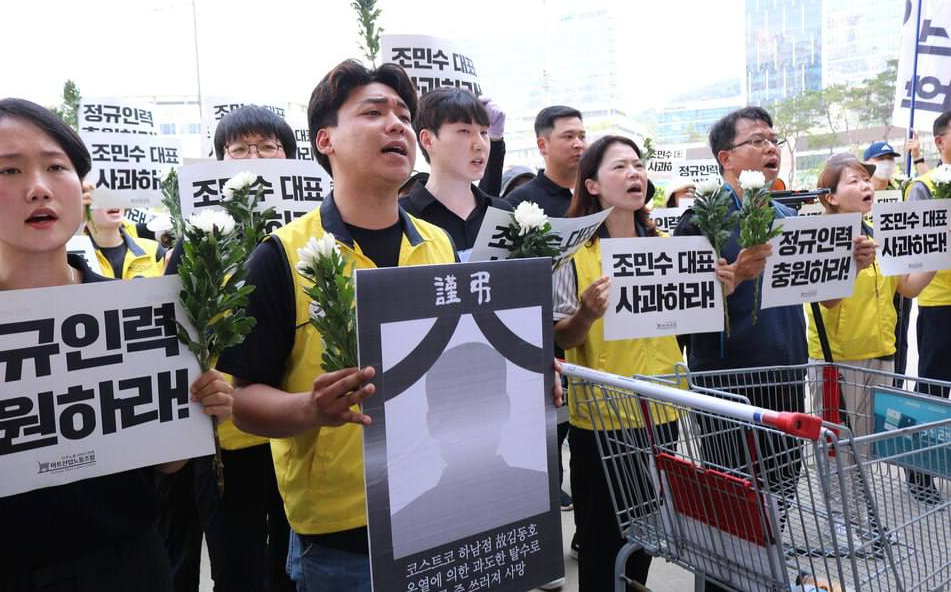At the 2nd UNICARE World Conference in Rome, trade union delegates from around the world reiterated their demand to establish or reinforce collective bargaining for all care workers as a cornerstone of basic workers’ rights.
According to UNI Europa Regional Secretary Oliver Roethig, trade unions have taken collective bargaining for granted for far too long. “Collective bargaining is one of our biggest assets – the key element to stablising our societies and democracies,” says Roethig. “We need to use our collective strength through collective bargaining, global framework agreements and social partnerships to push multinationals at the national and international level.”
“We need to organise, and we need to talk about collective bargaining. Digitalisation is changing the labour market at a frantic pace. At this unique place and time, we are presented with the opportunity to ensure that the labour rights of all workers are enshrined in this new era through collective bargaining.”
Pierangelo Raineri, the General Secretary of FIST-CISL talked about the collaborations which formed the foundations for strong collective bargaining in the Italian care sector. “We’ve always had strong relationships with employers and use them to collectively bargain,” explains Raineri. “Together with other organisations, we can make sure that there are provisions for some of the things we value most: lifelong learning, training, safe working conditions and fair wages.”
In Italy, this has been made possible by creating bilateral instruments and agreement between employers and unions who can safeguard the welfare of workers.
Thanks to a long history of trade union activism Japanese workers cannot be ignored. The 1.7 million strong UA Zensen, which represents over 82,000 workers in the health sector has established a good relationship between social partners and achieved strong collective bargaining agreements.
Masanobu Furukawa from UA Zensen told delegates that with the exploding elderly population in Japan, the need for collective bargaining agreements in the health sector is dire. Overcrowded care homes, burnout, stress and dangerous conditions are rife and unions are looking for solutions. The relationships built up through collective bargaining are a way to make sure that workers lives are improved.
Katha Fortier, from Canadian UNI affiliate UNIFOR, told the UNICARE conference that their multisector union has made its collective power felt by running a campaign together with other unions to help organise hospital workers. Through innovative social media campaigns such as the “Six-Minute Challenge” (a challenge asking people to try and get ready in the same six-minute period that care workers have to get their patients ready every day), UNIFOR has been able to galvanise public support for care workers against the might of for-profit organisations and the local government.
Jean Piet Bauwens from SETCA BBTK Belgium explained that due to a very high union density of over 50 %, trade unions have been able to sign collective agreements at the national, regional, sectoral and company level. This has ensured that workers’ voices are heard and agreements around stable schedules, maximum working hours and minimum leave have brought hope to workers.



